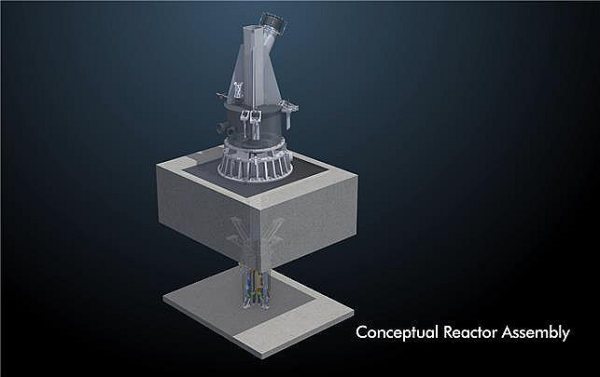KPL
(KPL/Yonhap) A Republic of Korean-led consortium has won a contract to conduct an initial design phase of a U.S. research reactor project, the science ministry said Thursday, marking the Asian country's first export of its reactor technology to the United States.

(KPL/Yonhap) A Republic of Korean-led consortium has won a contract to conduct an initial design phase of a U.S. research reactor project, the science ministry said Thursday, marking the Asian country's first export of its reactor technology to the United States.
The consortium consisting of the Korea Atomic Energy Research Institute (KAERI), Hyundai Engineering Co. and U.S. nuclear power engineering firm MPR signed a deal with Missouri University to conduct the early phase of the Next Generation Missouri University Research Reactor (NextGen MURR) project, the Ministry of Science and ICT said in a press release.
The initial phase, dubbed the "design study package," is to look into conditions of the construction site for the 20-megawatt thermal reactor and conduct an environmental effect assessment for the project, it said.
"Through consultations (with the university), the consortium will strive to win the next-stage deal for the basic design of the reactor after completing the design study package for six months," KAERI Executive Vice President Lim In-cheol said in a press briefing.
The ministry hailed South Korea's successful bid to win the Missouri reactor deal as a "monumental achievement" for Asia's fourth-biggest economy, which began developing its nuclear reactor capabilities by adopting a research reactor, TRIGA Mark-II, from the U.S. in July 1959.
The consortium was selected as the preferred bidder for the project in July 2024.
Unlike nuclear plants that generate electricity, research reactors produce radioactive isotopes used for medical treatment and other new materials using neutrons from uranium's nuclear fission process.
Starting with the Missouri deal, the government plans to set up a strategy within the first half of the year to export additional Korean-made small modular reactors, SMART, and research reactors to global markets.
"There is a growing demand for research reactors in countries that have an interest in nuclear power plants. And replacement demand for decades-old research reactors in many countries is also on the rise," Lim said.
In particular, he expected to obtain deals to supply research reactors to African countries interested in Korean reactors.
Currently, 227 research reactors are in operation in 54 countries, with more than 70 percent of them being over four decades old, according to the ministry.
It expects the demand for replacement reactors to reach about 50 over the next 20 years.
As for concerns that the U.S.' recent designation of Republic of Korea as a "sensitive country" may affect bilateral science technology cooperation between Seoul and Washington, the executive said he does not anticipate any major impact on future deals in the U.S.
"The Missouri deal was signed after the designation, and the consortium is expected to win the basic design deal unless an extraordinary event takes place," he said.
The U.S. Department of Energy (DOE) said last month that former President Joe Biden's administration added Republic of Korea to the DOE's Sensitive and Other Designated List (SCL) in January -- a list that includes DPRK (North Korea), China and Russia.
KPL